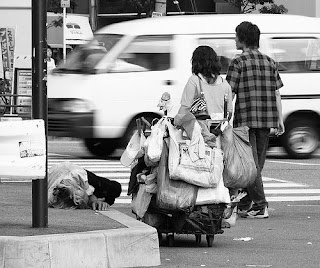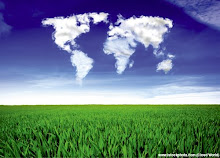
'...to integrate the principles, values, and practices of sustainable development into all aspects of education and learning. This educational effort will encourage changes in behaviour that will create a more sustainable future in terms of environmental integrity, economic viability, and a just society for present and future generations.'
The education system is changing to incorporate sustainable development, this will encourage future generations to think of their own and others impact upon their environment. Not only will education emphasise the fear of global warming which we can not escape being told but also on the greater impact of our every day living e.g. the life of our co cola cans.
Education for sustainable development enables pupils to develop the knowledge, skills, understanding and values to participate in decisions about the way we do things individually and collectively, both locally and globally, that will improve the quality of life now without damaging the planet for the future. There are opportunities for pupils to develop their understanding of sustainable development within the school curriculum, in particular their work in geography, science, PSHE and citizenship. (National Curriculum, 1999)
However like many of my peers i had only really touched on the subject of sustainable development within geography lessons. But sustainability is such a vast subject which can be integrated into all parts of our life, I feel that it should also be integrated into all parts of the education system, not just to memorising facts within geography lessons. An example of this could be within the Art classrooms. As i remember throwing away many materials without thought other than card which typically went into the recycling bin. As sustainability is not only about resources it would have probably save my family and school a great amount of money if i had been more resourceful with my projects. (Which after marking usually went into the bin.)With sustainable development now within the curriculum for key stage 3 and 4 within geography has posed a problem for teachers, as they are unaware how to start. While witching teachers TV it demonstrates fun and encouraging ways to incorporate thinking about sustainability not only within geography lessons but within other subjects such as Design Technology where the main thought is to resources.
By using this technique it takes the stereotypical idea of designing an 'Eco-friendly' house to everyday situations from the food we eat to the transport we used to get to school. Not only will this develop the children's knowledge of sustainable living but also their families as children wish to share the knowledge they learn with everyone around them!!!!
This module has not only provided me with a greater knowledge of sustainability but also developed a variety of skills. As until this course i had never had to take part in a formal debate, write a blog or use a video camera. The skills from this unit will be transferable and useful to future modules.
References
https://webmail.northampton.ac.uk/exchweb/bin/redir.asp?URL=http://portal.unesco.org/education/en/ev.php-URL_ID=27234%26URL_DO=DO_TOPIC%26URL_SECTION=201.htmlHaigh, M., (2005), Geography and the 'European Year of Citizenship through Education. Journal of Geography in Higher Education, 29, 173-182.
Mr Martin Selman, (2007), Design and Technology- sustainability:making a start [online], Teachers TV, Avalible, http://www.teachers.tv/video/3305 [Accessed 18 Febuary 2009]
Programmes of study and attainment targets, (1999), Education for Sustainable Development, [online], National Curriculum, Avalible, http://curriculum.qca.org.uk/key-stages-1-and-2/learning-across-the-curriculum/education-for-sustainable-development/index.aspx?return=/search/index.aspx%3FfldSiteSearch%3Dsustainable+development, [Accessed 18 Febuary 2009]





